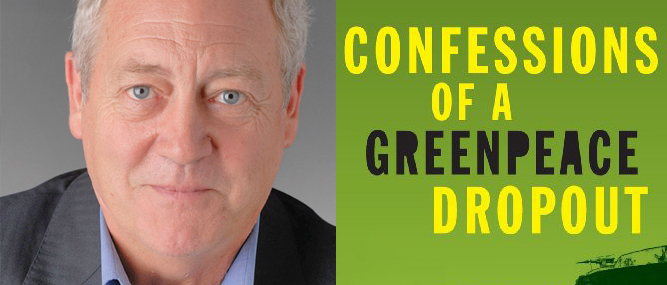The political season is heating up, and I couldn’t help but think about how the debate in this country has gone from skirmishes to an all-out war. Even in topics that should bring us together, such as education or caring for the planet, there is little common ground.
It is so easy to demonize the other side as anti-this or pro-that. I recently thought about this while watching an online video interview with Dr. Patrick Moore, an early leader in Greenpeace who left the environmental organization after claiming the organization strayed from its original aims and followed non-fact-based campaigns.
Dr. Moore has appeared in past interviews in Pallet Enterprise and was for a number of years a major speaker at forest product industry meetings. He became an advocate for using wood products as part of a sound environmental policy, and he eventually went on to write a book titled, Trees Are the Answer. You can see a video explaining his main premise in the book at https://www.youtube.com/watch?v=KZN6QuAdxLI.
Moore has been demonized in the mainstream press. Greenpeace characterized Moore as a “paid spokesman for a variety of polluting industries for more than 30 years, including the timber, mining, chemical and the aquaculture industries… Mr. Moore has now worked for polluters for far longer than he ever worked for Greenpeace.”
Greenpeace’s response is typical of what preservationist groups say about business and industry. The argument goes, “Businesses want to destroy the environment for profit, but we need your money and support to save it.” Things are never really that simple. Academic institutions, competing technologies or materials, political organizations, landowners and companies all have vested interests in various environmental issues. Evidently, Greenpeace has pure motives. This organization has revenues of more than $30 million per year, and yet its motives are never called into question by many in the “mainstream” press.
Moore went on to write another book, Confessions of a Greenpeace Dropout. In this book, he covers a lot of the junk science and core issues that get easily mixed up in environmental debates.
Moore suggested, “We should be growing more trees and using more wood, not cutting fewer trees and using less wood as Greenpeace and its allies contend. Wood is the most important renewable material and energy resource.” Of course, this is something that people in the forest products industry already know. But it isn’t common sense to everyone.
That’s where you come in. You know a lot of people. What happens if you forward messages like the “Trees Are the Answer” video mentioned in this column? You can send to 50 friends or customers who can send to others. We need to use our voice to tell our true story. Otherwise, the competition will paint a false narrative that hurts our long-term viability.
Yes, you are busy running your company. But you need to spend some energy and time telling a better story. Increasingly, customers are going to want more than just price and delivery on time. They want to know that their purchasing practices make environmental sense. What are you doing to spread the word about wood products, especially pallets?
There are big competitors out there who want to radically restrict or shut down timber harvesting and wood production believing they are helping the environment.
Moore wrote, “Environmentalism is to a large extent a populist movement that challenges established authority and appeals to the disenchanted, social revolutionaries, and idealists. ‘Pop environmentalism,’ like popular culture in general, tends to be shallow and sensational, moving from fad to fad. The pop environmentalists are generally self-assured, even smug in the belief they know the truth.”
Radical preservationists are bent on changing culture and business practices. The longer that they see you as the problem, the more in danger our industry will be. It’s up to you to communicate that loggers, sawmills, pallet operations and wood industries are tree huggers too.




